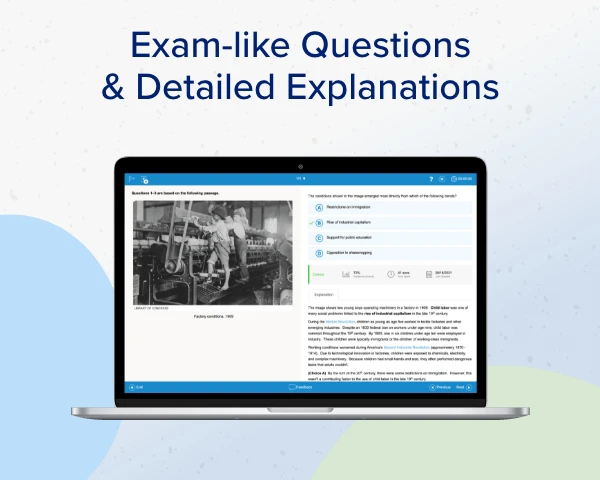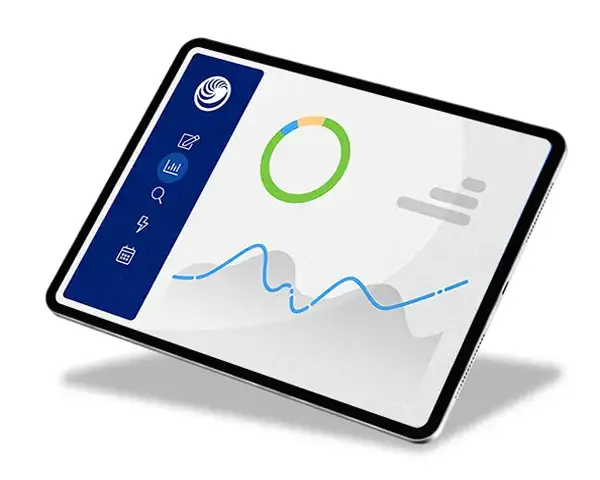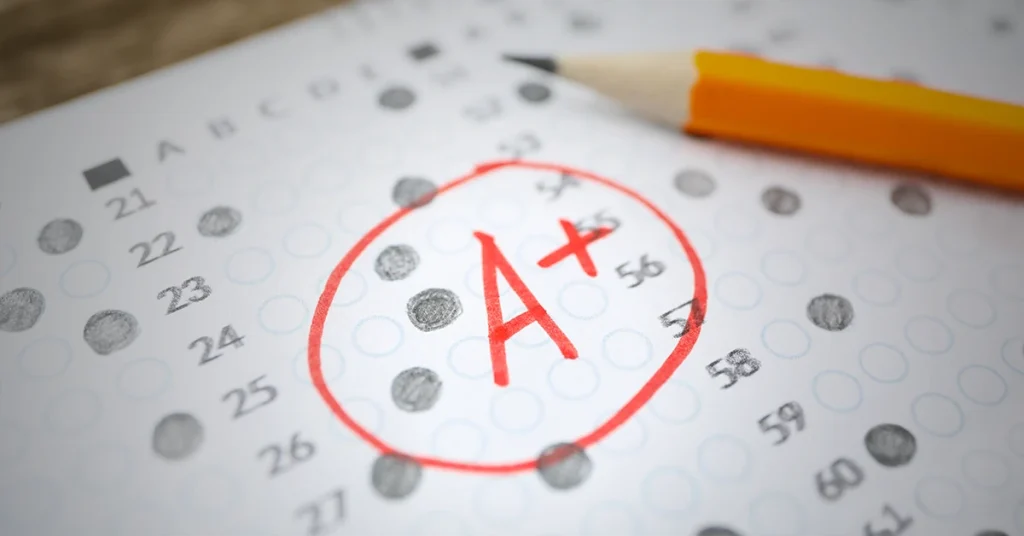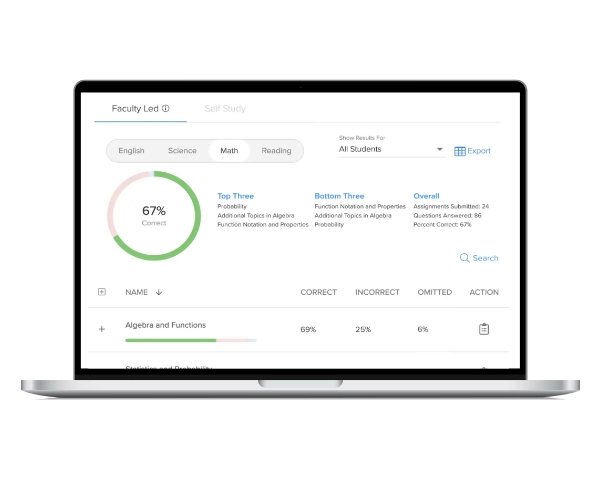There’s a measurable difference between the majority of AP® exam scores and class grades. Historically, AP class grades tend to be higher than exam scores. In recent years, this gap has noticeably widened. The causes behind this issue are complex and multifaceted. Most discussions focus on grade inflation, but some go as far as to suggest that teachers who feel guilty about giving low grades or feel pressured into giving higher grades are to blame. That’s just one of several misconceptions that don’t get to the heart of the matter. So, what really are the root causes of these AP discrepancies1?
Teachers Are Too Lenient … Because They Have to Be
In an education system influenced by external pressures — state funding,2 educator pay,3 and evaluations tied to student outcomes — AP teachers often feel compelled to award higher grades in their classrooms.4 Students and their parents, unaccustomed to the high expectations of AP courses, also frequently pressure teachers to adjust grades, wearing them down with persistent requests until they eventually relent.5
The Root of the Problem: Grade inflation, exacerbated by policy-driven leniencies, places undue stress on AP teachers, shifting the focus away from student accountability.6 Even after the pandemic, many teachers feel pressured to pass students who haven’t completed assignments or mastered course concepts.7 AP classes, with their rigorous demands, often spur students and their parents to protest low grades, which sometimes results in upward changes. A 2023 study found that 82% of instructors succumbed to parental and student pressure to alter grades.8 For teachers, being labeled as “too lenient” or “too harsh” creates a lose-lose situation.
The Solution: Schools and districts can implement clear grading policies that hold AP students accountable and protect teachers from being coerced into changing grades. Administrators can incorporate standardized resources into these policies, ensuring classroom performance accurately reflects student readiness for AP exams. Grading practices rooted in unbiased, data-driven reports can address fairness concerns while preparing students for the rigorous expectations of AP courses.

Coursework Doesn’t Match Exam Rigor … Because Instructional Resources Are Limited
There’s often a disconnect between the rigor of AP coursework and the actual AP exam.9 This is especially true for courses like AP Environmental Science, which are perceived as “easy” but often have low pass rates.10 AP demands a level of understanding that goes beyond memorization and leans into critical thinking.
The Root of the Problem: Educators face significant challenges in designing course materials that accurately reflect AP exam rigor. With limited resources and time, they often struggle to find or create materials that align closely with the exam. AP teachers must accomodate a diverse range of student needs. Open enrollment policies have made AP classes more equitable, which means some students may need extra support to succeed. Teachers need rigorous and scaffolded material as well as practical resources to meet students where they are.
The Solution: School and district leaders can provide AP teachers with resources that truly support them in every aspect of their course curriculum and planning. This will ensure teachers can easily integrate coursework that is rigorous, effective, and engaging. Practice assessments should mirror the format and demands of AP exams while also addressing student misconceptions. Professional development, including AP Summer Institutes, can also equip teachers to differentiate instruction while maintaining the rigor necessary for AP success.
Teaching Methods Aren’t Effective … Because Subject Expertise Requires Training
Success on AP exams is closely tied to a teacher’s understanding of AP standards and ability to deliver the curriculum effectively. Discrepancies often stem from gaps between instructional methods and AP skill application, particularly for new AP teachers. Staying current with College Board® updates and emphasizing critical thinking are imperative.
The Root of the Problem: Maintaining up-to-date expertise and delivering nuanced instruction is challenging, especially without access to high-quality teaching resources and preparation strategies. This is particularly true for new AP teachers, who may be familiar with the course content in theory but find it challenging to teach it in practice. While the AP Course Audit ensures teachers understand all requirements, effectively teaching the content can be a steep learning curve.11
The Solution: Districts can offer professional development opportunities for new and experienced AP teachers to ensure they have access to quality resources aligned with College Board standards. Sample lesson plans, assessments, and practice materials that closely resemble the exam can be invaluable. AP Summer Institutes and mentorship programs can also support new teachers, helping them avoid reliance on “drill-and-kill” methods and instead focus on fostering a deeper understanding of the material.

How AP Exam Scoring Recalibrations Affect Gaps
The College Board began to recalibrate its scoring systems for some of its AP course exams in 2022, with several AP subjects now modified. This scoring adjustment marks a major shift in how AP exams are graded. It’s been applied across several key subjects, including AP English Literature, AP World History, AP Biology, AP Chemistry, AP European History, AP U.S. History, and AP U.S. Government.
The recalibrations ensure AP scores more accurately reflect college-level expectations. The College Board hopes to create a more consistent and reliable measure of student performance, reducing the gaps between college course grades and AP exam outcomes. The goal is to build a fairer and more transparent grading system where AP exam scores genuinely reflect students’ readiness for the academic challenges ahead.
With these new scoring guidelines, the AP course vs. AP exam grade gap discussion continues to evolve. Some worry that these exam scoring adjustments might make the assessments too lenient, potentially fueling AP class grade inflation. Others believe these recalibrations won’t affect high school AP course grades and will only positively affect their alignment with equivalent college courses. Despite the complexities involved, the overarching goal remains the same: to give students a meaningful opportunity to develop college-readiness skills and earn college credits.
A Remediation Plan for AP Grading Policies
To narrow the gap between classroom performance and AP exam scores, it’s important to look at the root causes of the problem. The 2024 AP scoring recalibrations may not solve this problem by simply aligning grading practices with the demands of college-level coursework, but they will hopefully support a more equitable and accurate representation of student achievement. Revised grading policies, resources, and professional development opportunities can help educators assess student understanding accurately and better predict exam performance. This promotes an educational environment where grades reflect true college readiness, preparing students for the format of AP exams and the depth of knowledge required to excel.

References
- Camera, L. (2023, July 18). Academic mismatch: Students earned record-high GPAs as scores lagged on achievement tests. Here's what the new federal data could mean. The 74. https://www.the74million.org/academic-mismatch-students-earned-record-high-gpas-as-scores-lagged-on-achievement-tests-heres-what-the-new-federal-data-could-mean/
- Martin, F. (2021, May 12). Education advocacy nonprofit slams STAAR testing. Houston Chronicle. https://www.houstonchronicle.com/neighborhood/katy/article/Education-advocacy-nonprofit-slams-STAAR-16168880.php
- Policy vs. Politics. (2023). Government-mandated standardized tests for schools. https://policyvspolitics.org/government-mandated-standardized-tests-for-schools/
- National Council on Teacher Quality. (2019). State of the states 2019: Teacher and principal evaluation policy. https://www.nctq.org/pages/State-of-the-States-2019:-Teacher-and-Principal-Evaluation-Policy#:~:text=Despite%20the%20research%2Dbacked%20benefits,survey%20data%20in%20teacher%20evaluations
- Whelan, L. (2023, November 29). Opinion: What grades really tell parents, students, and teachers. The New York Times. https://www.nytimes.com/2023/11/29/opinion/grades-parents-students-teachers.html
- Goldstein, D. (2023, October 4). Opinion: Teachers, grades, students, and the expectations gap. The New York Times. https://www.nytimes.com/2023/10/04/opinion/teachers-grades-students-parents.html
- Meyer, I. (2022, June 18). Bryant HS teachers say they must pass all students. New York Post. https://nypost.com/2022/06/18/bryant-hs-teachers-say-they-must-pass-all-students/
- Intelligent.com. (2022, October 12). Gen Z students often beg for grade changes—8 in 10 educators give in. https://www.intelligent.com/gen-z-students-often-beg-for-grade-changes-8-in-10-educators-give-in/
- Frontiers in Education. (2022). High school teachers' experiences with grade inflation: The qualitative analysis. Frontiers in Education, 7, 1007779. https://www.frontiersin.org/articles/10.3389/feduc.2022.1007779/full
- Best Colleges. (2023). AP Environmental Science guide. https://www.bestcolleges.com/resources/ap-environmental-science/
- College Board. (n.d.). Teaching AP for the first time? AP Central. https://apcentral.collegeboard.org/instructional-resources/teaching-ap-first-time
- Finn, C. E., Jr. (2023, October 10). The great recalibration of AP exams. Thomas B. Fordham Institute. https://fordhaminstitute.org/national/commentary/great-recalibration-ap-exams




